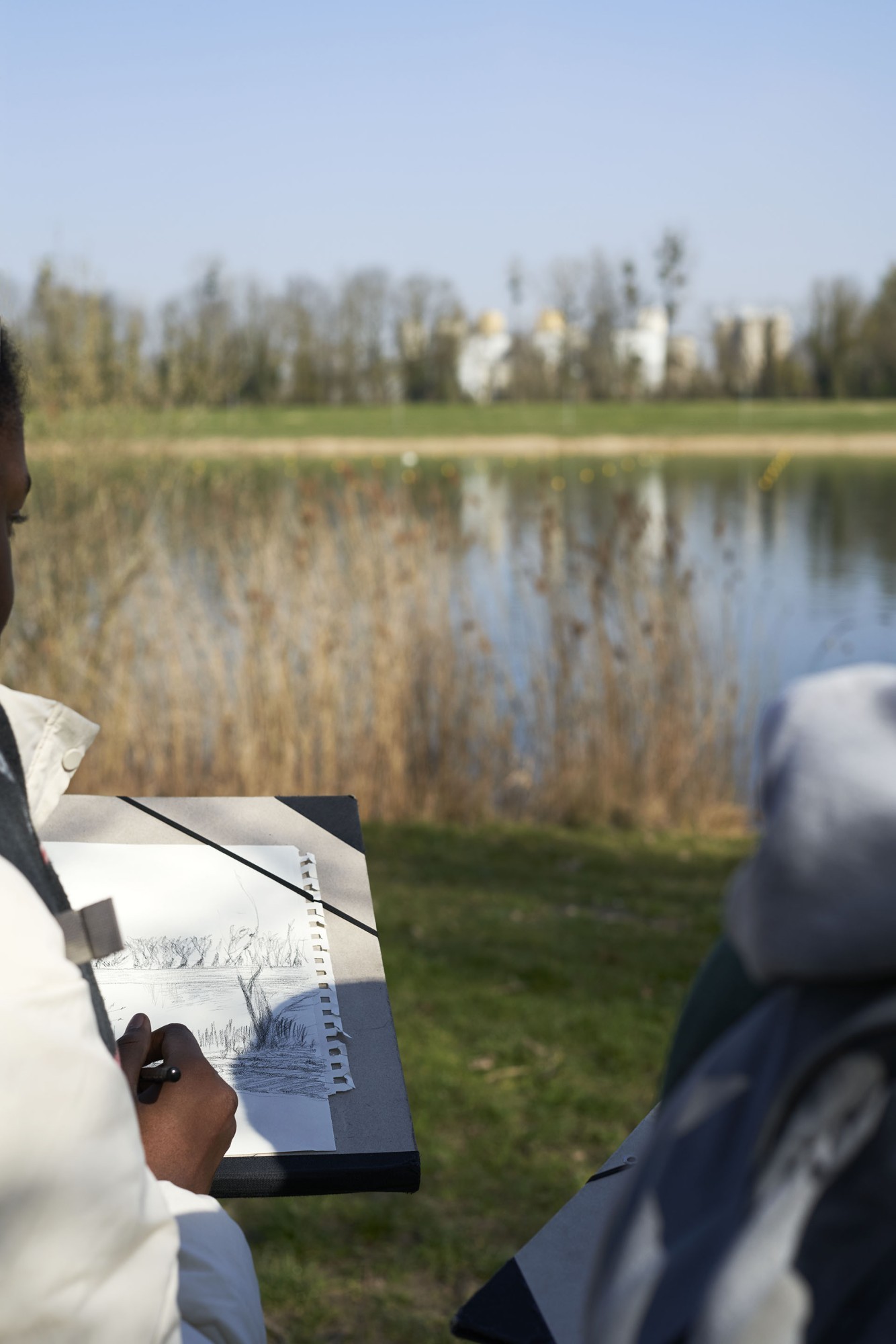Urban Ecology
Thematic session:
DSA architecture with a specialization in urban design
contact details by
Thibault Barbier, landscape and urban planning engineer.
March
Objectives
Modernity has taken us from a spontaneous process of ecosystem organization and functioning, governed by natural cycles, to a process dominated, constructed and managed by man. To fit into a place, to integrate into an environment without "breaking the machine" is a delicate conceptual and technical alchemy. Rethinking the synergy with the living world and the climate is the challenge facing the urban planner-designer who must accompany the perpetual - and necessary - evolution of the "natural" human environment: the city.
The territorial ecology theme week aims to shed new light on the interactions between the living world and living environments, with a project approach centered on the issue of soil. Both a support for living organisms and the basis of all design, soil
soil is capable of renewing our view of ecology and the city, and is thus a key element in the current ecological transition.
Content
Firstly :
- decomposition of the entity "nature" into biotic (plant, animal, human) and abiotic (soil, climate) sub-factors.
Each factor will be presented in summary form (key notions) and illustrated (virtuous practices) to facilitate appropriation in the project approach. - presentation of the main concepts and regulatory players, and examples of how they can be mobilized in a project approach
- introduction of the notion of "ecosystem services" and the new players involved (Biodiversity Agency, compensation bank, investment fund, rating agency, etc.).
Second phase:
- experts to illustrate new urban ecology operational practices in the context of emblematic territorial and urban operations
- contributions from players involved in the economic approach to ecosystems.
Third phase: - workshop to design a set of ecological practices and ecosystem management principles applied to the semester's urban project.
Target audience
Managers and employees of architectural, landscape or urban planning firms, technical service managers and technicians of local authorities, employees of public planning establishments, urban and territorial engineering specialists, sustainable development officers and project management employees.
**Prerequisites
None required.
Program
| Training sessions | Speaker(s) |
|---|---|
| The carbon metric | by Florian Dupont, urban planner specialized in the environment and energy, co-founder of the Zefco agency. |
| Zero artificialisation Net, avoid-reduce-compensate: the limit of sustainable development | by Brian Padilla, ecologist (MNHN) |
| A new urban-rural metabolism | by Agnès Sourisseau, landscape architect, farmer, director of Agrofile |
| The living soil, field visit, the soils of Noisy-Champs | by Emmanuel Bourguignon, agricultural engineer and doctor, director of the LAM |
| Water management in urban planning | by Jean-François Morel, engineer, director of the Mageo-Morel engineering firm |
Teaching methods
The course is given face-to-face on the school's premises.
Training location
École d'architecture de la Ville & des Territoires
registered under n° 11770592677
(this registration does not imply state approval)
Contact and registration
n.n.
Documents to download
Prices
350 euros net / day
or 175 euros net per ½ day
